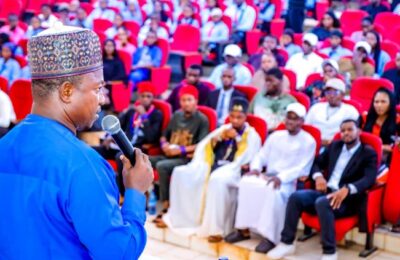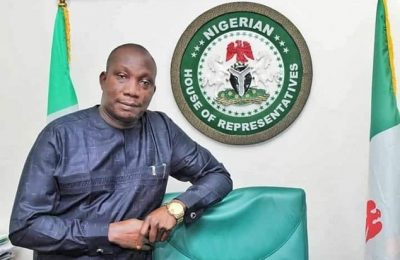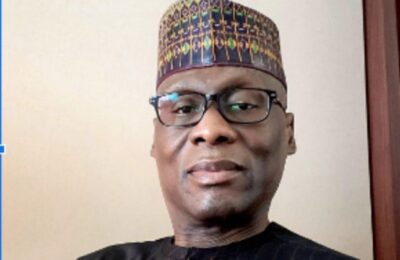By Prince Suleiman Adinoyi
Anything history, I always distance myself because only God Has the true Carbon copy of life’s History with events from the genesis to the present time. But for the counter arguments in link to the agitation of Okura State with the alleged inclusion of Ajaokuta and the previous queries raised by some youth of Ajaokuta on their paternity, which seems censuring the history of Ebira Nation, that they coincide to be the reasons for the Igalas to lay claims on the LGA in the time past, I feel I need to do this.
Firstly, from my findings, I grasped that the history of the Ebira people, the Igalas and their migration to the Present day Kogi State are somehow intertwined.
In the generally endorsed published stories of a history enthusiast, Officer Yakubu Momoh, it states that, oral tradition and written agreed that the ancestors of Ebiras around Niger-Benue confluence hailed from the ancient Jukun, at Wukari the Kwararafa kingdom of the present day Jukun community in Taraba state, Nigeria, all the way from Yemen. It reveals further that the Ebira community later left Jukun to Idah, part of the present Kogi state.
In a synonymous Igala history, it is said that the Igalas too had earlier before the Ebiras migrated from Egypt around river Nile through various places in Borno state to Wukari where they settled with some tribes before they migrated to Ife and then to Idah to form their present day territory.
The interwoven of culture we have noticed among the Igalas and Ebiras bearing same title, clans and masquerade costumes was dated back to 1248-1272 AD.
My findings from some papers such as Int. Journal of Arts and Humanities, Pulse Nigeria etc reveal that the Igala kingdom was not established until mid-1550s when their first Attah Ebule-Jonu (a woman) founded it. In fact, some had claimed that her husband was an Ebira Man. While history of her husband’s origin and children were in unclear, she was known to be a daughter to Abutu-Eje who was later succeeded by her brother Aganapoje. Aganapoje’s son Idoko became the next Ata, and his two sons, Atiyele and Ayegba, went on to establish their own kingdoms. Atiyele founded the Ankpa kingdom (Éjé Ankpa), while Ayegba succeeded his father as the Ata of Igala. This is in accordance with Ogido, 2004, who opines that Ebira people met the Igala kingdom already established with Kinship structure, and with the reign of the Atta (Father) of Igala in Idah.
A consistent Ebira history has it that Ebira is however a Prince Of Junkun of the Kwararafa state north of the Benue River in present-day Taraba State. Ebira relics of trace from Junkun, Kwararafa is the Apete stool, their symbol of authority and identity as a group within the kingdoms of Kwararafa and are Major Warrior, Hunter, Iron Bender, and Farmer.
From the History also, the incessant invasion of Igala Kingdom by The then Benin Kings, The Igbos and other Kingdom they shared linkages with, made the Atta of Igala invite the Ebira (Prince of Jukuns) who came with the Group of his Men From Jukun Kingdom. Thus, the Idah-Benin war (1515-1516) was a war of mutual independence because Igala was not Alone in the Battle Field.
After The war, a Non fulfilments of Promised by Atta Igala to The Ebira Group led to a Land dispute between the two groups in Idah. This led to a parting of ways, and the Ebiras moved southwest.
Before Ebira left Idah, both Igala and Ebira Empires had been co-influenced by Ebira, Yoruba, Edo, Idoma. That is, there has been Lingual mixed with Yoruba and Igbos because of inter-language communication during Translactic Slave Trade.
Ebira had a stop by at Itobe (Étte-Ube). The Remaining Ebira Group That left Idah were ITAAZI (Ebira tao) IGU (Ebira koto), PANDA (Ebira Toto, Nasarawa,) AGATU (Ebira Benue, the Father of Ebira MOZUM that choose to Settle Among Basa and Finally UNO (Ebira Ètè-Uno, of Edo) who choose to cross the River Benue with ITAAZI.
Ebiras separated at Itobe (Étte-Ube) after misunderstandings on where to settle since they are all Brothers with different occupations. IGU who has great passion for fishing decided to settle at the river bank. While ITAAZI who Married Atta Igala Daughter was a hardworking man who considered fishing a lazy work so he moved southward into the forest Across the river with his wife and started Hunting and farming. He had his popular Daughter, Ohunene in Ajaokuta, where Eganyi District is later formed.
All Members of the various clans in Ebira Tao are descendants of the children of ITAAZI. ITAAZI had five (5) sons namely, 1) Adaviruku/Ohizi, 2) Ododo, 3) Obaji, 4) Uga, 5) Ochuga/Onotu).
Ohizi (Adaviruku) had five children who are progenitors of the five traditional Adavi clans named after them. They occupied the present day Ajaokuta, Adavi, Okene, Okengwen, Okehi, Eika, Ihima, Osara, Osisi Among Others. So, importantly, Ohuenene was born and has her root in Eganyi in Ajaokuta, however Ohizi (Adaviruku) had progenitors that occupied their first ancestral home (Ajaokuta), Adavi, and spreads to every other LGAs in central just like his other brothers. Hence, the interrelation of clans.
Historian, Salihu Ogido has also said that there has been part of the Igalas that settled around the Ajaokuta/Itobe river-rine. These few Igalas who had also settled around this area are fishermen of which they sell fish to the Ebiras and other neighbouring settlers and tribes.
However, just like the Ebiras went for hunting in ÉTTÊ-ÚBÉ (land of hunting in Ebira) which later became the name in Igala land (ITOBE) till date, the Igalas also named the fish market after the #nearby AJAOKUTA, as AJA in Igala language symbolizes market while ‘OKUTA’ means stone, Literally justifying “a market near stone”. At this point, the Ebiras were hunters and warriors. (Ogido:2004)
From all indications, Igalas were never by chance close to owing the LGA with the fact that Ajaokuta LGA’s first settler was Adayi Itaazi who gave birth to Ohunene and other children that crossed path to other LGAs in central. This conformed to the article published by the – Indigenous Igala People Worldwide “that Idah means ‘Ona Imuda or Imuda’, meaning the road has ended.” They said after Igala people left Wukari journeyed through Benue. They then met river niger, and that was where the road ended. The slow trekkers who could not work fast later met their people sitting down and they asked them, why are you not continuing, and they answered them, Ona Imuda (meaning the road has ended).
In a published article of Yakubu Momoh citing by Eluwa et al, 1987, a valid statement for Ebira being the true ownership of Ajaokuta was contained in the Nigeria constitution where the 1946 Governor of Nigeria, Arthur Richard split Nigeria into three regions of North, East and West, with Okene LG and Ajaokuta being part of the North, while the Igala axis belong to the Eastern Nigeria. Even, the 1976 LG Reform by General Olusegun Obasanjo also created Okene/Ajaokuta Local government as one. How about those 5 LGAs in the then old Kwara while Igalas was in Benue?
The case of Ohunene being the a father to Ajaokuta that some youth in Ajaokuta queried isn’t the case here as adayi itaazi is the father of the 5 LGAs but nature decides the residence of his children. However people do give birth to a female child and give her his wealth. This is the case of Ebulejenu that founded Igala Kingdom and reasons for asking about her husband. So, it’s not out of place if it was solely that way that Ohizi (Adaviruku) never even gave birth to other children that occupied same Ajaokuta sideways with Ohunene. The question we should be asking is “If Itaazi settled in Eganyi in Ajaokuta and has one of his children, Ohunene there. This invariably mean if Ebulejenus husband couldnt be crowned as the Attah of Igala Kingdom far back 1550s, that means, the part of the history alleging that an Idah Prince (Son of Ayegba, Oma-Attah) marrying to Ohunene does not automatically makes him the owner of a place he came to take a wife.
The mistake I pictured in the whole situation was, while Igalas crossed the River Benue to start living with the Ebira people in Ajaokuta. Our leaders only grew with the habbit of living in a compact environment. The Igalas took advantages of the vast land of Ajaokuta that Ebira people never cared for, and as their leaders are building linkages roads and estates to attracts more Igalas to the area, some of our leaders contributed in sharing same lands to them and the Fulanis for peanuts, hence they become dominated and highly populated in 4 out of the 14 wards in Ajaokuta, having various classes of Traditional leaders and fortunately housing the Steel Company, NGC, Geregu PP I &2, BM Ceramics, West African Ceramics, Golden Quarry, Aboki Quarry, Salem University, Prime Poly, Supertek and BCS
On the aspect where some of my Ajaokuta brothers said to have been referred to as half LGA people, I think this was more of a political tongue and lack of civilization from some of our Ebira brothers, and that’s not always applicable to Ajaokuta only but also Ihima and Ogori people; even among the Igalas vs the Bassa/ibajisj, and I can attest that it’s a pure tribal sentiments which Governor Yahaya Bello has abolished.
On this note, I beseech that we always ignore the saying that Ebira Okenes are only against Ajaokutas inclusion in Okura state because of the steel and not a value for brotherhood. We have shared relationship and gained values as brothers from different districts compared to the Moribund Ajasteel that has never served any Ebira son since 1979.
In conclusion, there’s always a complexity of human history, language and culture, meaning that, no history is ever correct because humans are forgetful in nature and will everly have limitations and the potential for biases in historical accounts. Every tribe in Nigeria has lacuna in their own history, Igalas inclusive, that they disagree among themselves too. We were told the first human beings on earth were Adam and Eve, how come we now have people speaking over 7,000 languages in this planet? How about Nigeria with 250 ethnic groups, 500 languages and 1300+ clans? At what point did the complimentary replication in Tribes, and clans starts? That’s to tell us that there will always be interlace among tribes so long we live, share boundaries and transact together.
If you ask me, I will say we should avoid greed over what God Has given us in this life knowing that we are just traveling on earth and we will leave it behind in a short period of time. Loving one another, living in harmony and appreciating the diversity of human experiences are enough to satisfy everyone’s needs, because if we want to keep asking about the authenticity of our origin and history, we will one day ask God how he found Himself in Life and who created him.




